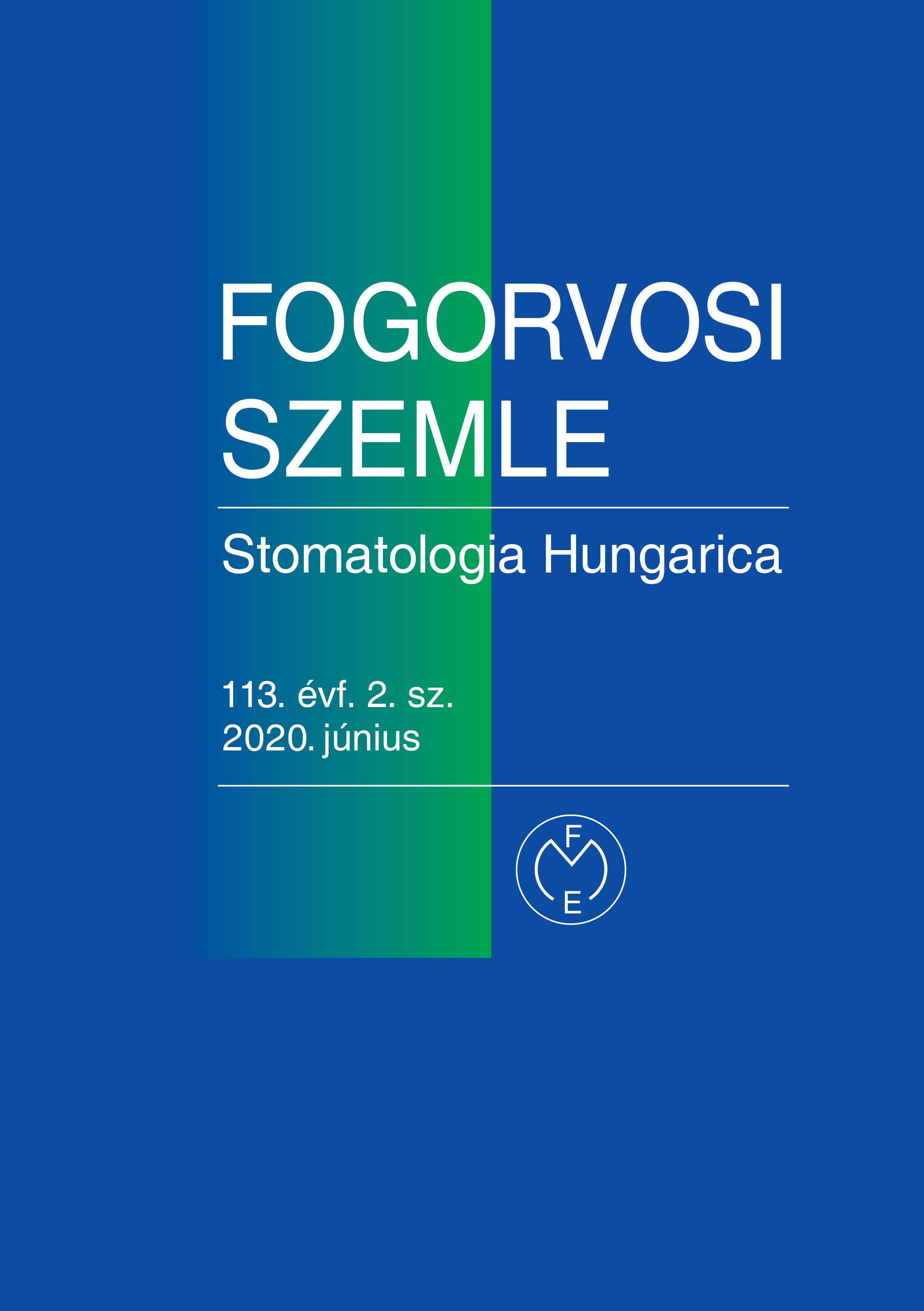Evaluation of the suspected relationship between anxiety, depression and temporomandibular disfunction
Abstract
Introduction: University students are exposed to psychological stress, which can be increased in exam period and, as
a result, symptoms of anxiety and depression may develop in some. According to previous studies, psychological status
as an etiologic factor may play a role in the development of temporomandibular disorders. However, the nature of this correlation has not been clearly demonstrated. Our aim was to investigate how the levels of anxiety and depression, incidence of symptoms of temporomandibular disorders and certain oral parafunctions change in exam period. We searched for possible relationship between these factors.
Materials and method: Questionnaire-based data collection was performed among dental undergraduate students at set times in the semester, and in the exam period, using the Hungarian version of the Diagnostic Criteria for Temporomandibular Disorders (DC/TMD). Incidence of temporomandibular symptoms, level of anxiety and depression, presence of oral parafunctions and intensity of pain were compared over the two periods.
Results: Anxiety and depression scores were significantly higher in the exam period than in the semester. All measured symptoms of temporomandibular disorders were more frequent and incidence of pain has doubled (from 25,4% to 52,5%). Pain intensity and levels of oral parafunctions were also significantly higher in the exam period. Among parafunctions, daytime bruxism showed the most prevalent increase.
Discussion: Our results suggest that higher stress levels in exam periods increase the degree of anxiety and depression, which coincides with higher frequency and severity of symptoms of temporomandibular disorders. Although correlation between these two phenomena is difficult to prove, it is possible that higher stress-levels may contribute to the onset or aggravation of temporomandibular disorders. Bruxism is supposed to be a physical manifestation of psychological
stress and therefore, it may play a role as a link between psychological conditions and temporomandibular symptoms.


.png)




1.png)



